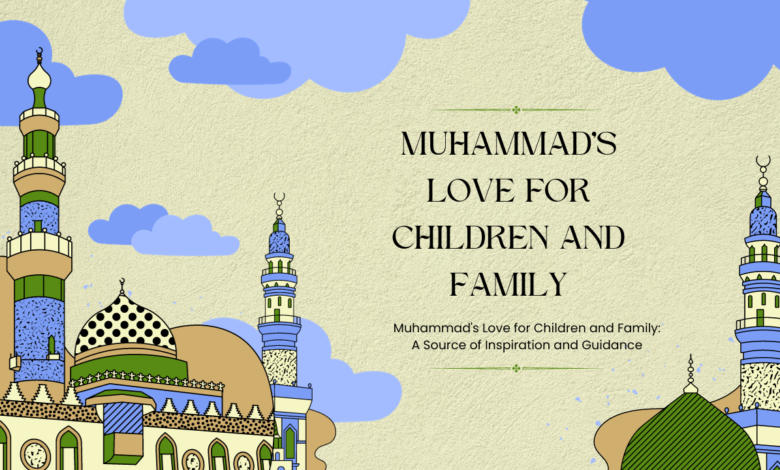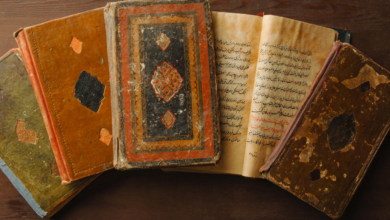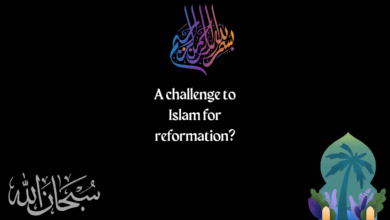Muhammad’s Love for Children and Family
Muhammad's Love for Children and Family: A Source of Inspiration and Guidance

Muhammad’s Love for Children and Family
Yes, Muhammad had children. He had three sons, but all of them passed away in infancy. His daughters, Fatimah and other daughters from his later marriages, survived to adulthood.

Introduction
Prophet Muhammad, the founder of Islam, is often celebrated for his profound teachings, leadership, and his unwavering commitment to spreading the message of Islam. While his role as a religious leader is well-documented, less often discussed is his deep love and compassion for children and family. Muhammad’s exemplary treatment of children and his devotion to his own family serve as a timeless source of inspiration for people of all faiths and backgrounds.
Muhammad’s Compassion for Children
- Kindness and Affection:
One of the most endearing qualities of Prophet Muhammad was his kindness and affection toward children. He would often play with them, carry them on his shoulders, and show genuine interest in their well-being. This compassion extended to all children, regardless of their background or social status. His actions teach us the importance of treating all children with love and respect.
- Respect for Their Feelings:
Muhammad was empathetic to the emotions of children. He would console them when they cried, listen to their stories and concerns, and always respond with patience and understanding. This demonstrates the value of acknowledging and respecting the feelings of the young ones in our lives.
- Advocacy for Education:
The Prophet emphasized the significance of education and encouraged parents to provide a proper education to their children, both boys and girls. His famous saying, “Seeking knowledge is obligatory upon every Muslim,” underscores the importance of learning and the role of parents in nurturing their children’s intellectual growth.
Also Check
- The Spiritual Practices of Muhammad
- The Life and Legacy of Prophet Muhammad
- Eid al-Mawlid: Commemorating the Prophet’s Birth
- The Life and Teachings of Prophet Muhammad (PBUH)
- Why theft is prohibited in Islam?
Muhammad’s Devotion to His Family
- Marital Harmony:
Muhammad’s marriage to Khadijah, his first wife, is often cited as an example of a loving and harmonious marital relationship. His loyalty and affection for Khadijah remained steadfast even after her passing, highlighting the significance of nurturing a strong and loving bond within a marriage.
- Role as a Father:
As a father, Muhammad was actively involved in the upbringing of his children. He provided them with love, guidance, and support, setting a remarkable example for fathers everywhere. His relationship with his daughter Fatimah, in particular, is a testament to the deep love and respect he had for his children.
- Advocacy for Family Values:
Prophet Muhammad emphasized the importance of family values and the sanctity of family life. He encouraged strong family bonds, responsible parenting, and the fair treatment of spouses. His teachings underscore the role of family as the cornerstone of a healthy and stable society.
Conclusion
Prophet Muhammad’s love for children and his devotion to his family serve as a timeless source of inspiration for people worldwide. His kindness, compassion, and advocacy for family values offer valuable lessons for individuals and communities alike. By following his example, we can strive to create a world where love, respect, and compassion for children and family are central to our lives. Muhammad’s legacy reminds us that nurturing these relationships is not just a religious duty but a fundamental aspect of being human.

(FAQs) about Muhammad’s love for children and family:
Did Muhammad have children of his own?
Yes, Muhammad had children. He had three sons, but all of them passed away in infancy. His daughters, Fatimah and other daughters from his later marriages, survived to adulthood.
How did Muhammad treat his daughters?
Muhammad showed great love and affection towards his daughters. He treated them with kindness, respect, and care, setting an example of how fathers should treat their daughters in Arabian society at the time.
Did Muhammad have a special relationship with his granddaughter, Fatimah’s daughter, Hasan and Husayn?
Yes, Muhammad had a deep bond with his grandsons, Hasan and Husayn. He often carried them on his shoulders, played with them, and expressed his love for them openly.
What is the significance of the Hadith about Muhammad kissing his grandchildren?
The Hadith narrates instances where Muhammad would kiss his grandchildren, emphasizing the importance of showing love and affection to children within Islamic teachings. It encourages Muslims to express their love for their own children and grandchildren.
How did Muhammad treat children in the community?
Muhammad treated all children in his community with kindness and respect. He would often stop to talk to children, play with them, and even carry them on his shoulders. He showed great patience and affection towards them.
Did Muhammad emphasize the importance of family in Islam?
Yes, Muhammad emphasized the importance of family in Islam. He encouraged Muslims to maintain strong family bonds, care for their spouses, and provide for their children. He believed that a strong family unit was the foundation of a healthy society.
Are there any specific teachings of Muhammad regarding parenting?
Muhammad provided guidance on various aspects of parenting, including the importance of providing for and educating children, treating them with kindness, and being a good role model for them. His teachings stress the responsibility of parents in raising righteous and respectful children.
Did Muhammad have a happy family life?
Muhammad’s family life had its challenges, including the loss of children and the trials faced by his family during the early years of Islam. However, he had loving relationships with his wives, children, and grandchildren, and his example is often cited as a model for harmonious family life.
How did Muhammad prioritize family in his daily life?
Muhammad balanced his responsibilities as a prophet and leader with his duties as a family man. He spent quality time with his family, helped with household chores, and made an effort to be present in their lives, setting an example for Muslims to prioritize family despite their other commitments.
What can we learn from Muhammad’s love for children and family in today’s context?
Muhammad’s love for children and family serves as a valuable example for Muslims and non-Muslims alike. It underscores the importance of showing love, respect, and care to one’s family members, fostering strong family bonds, and raising children in a nurturing and loving environment.






